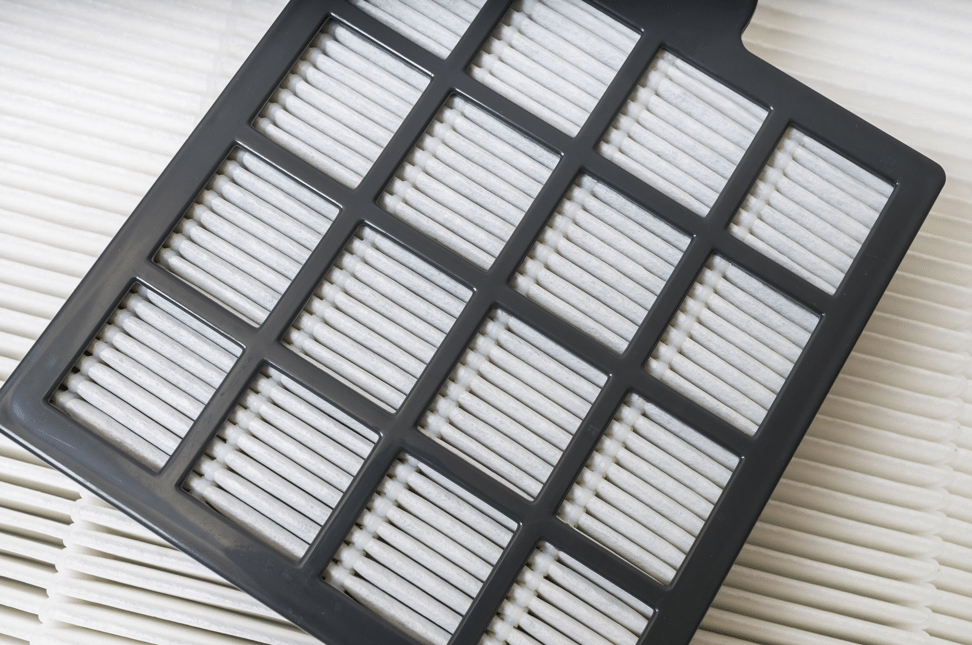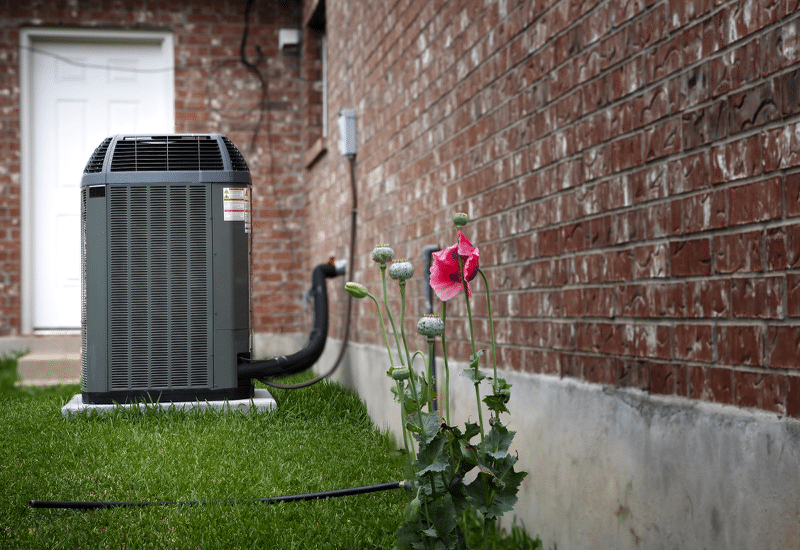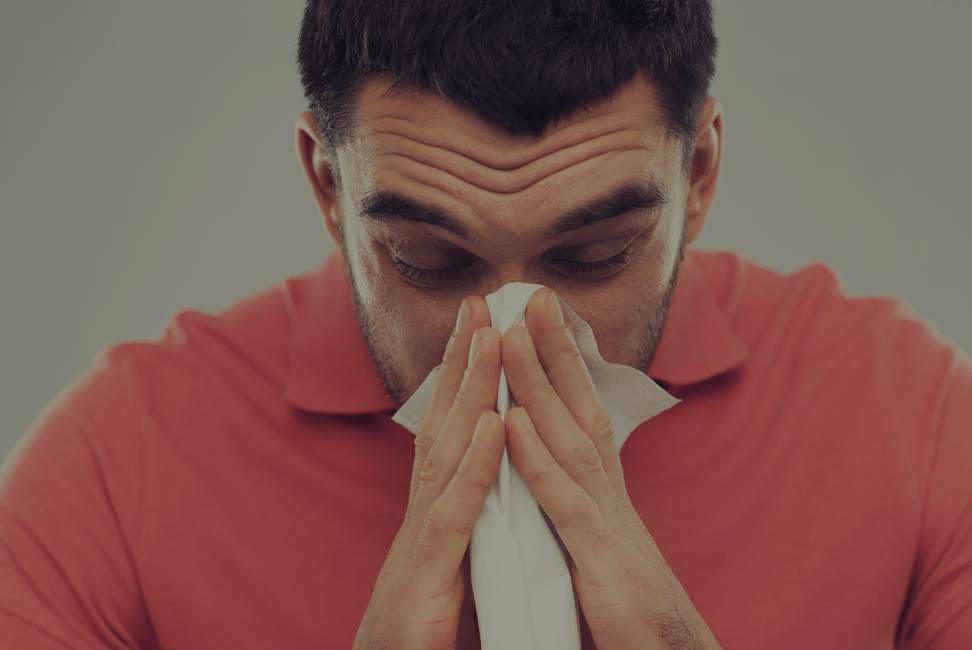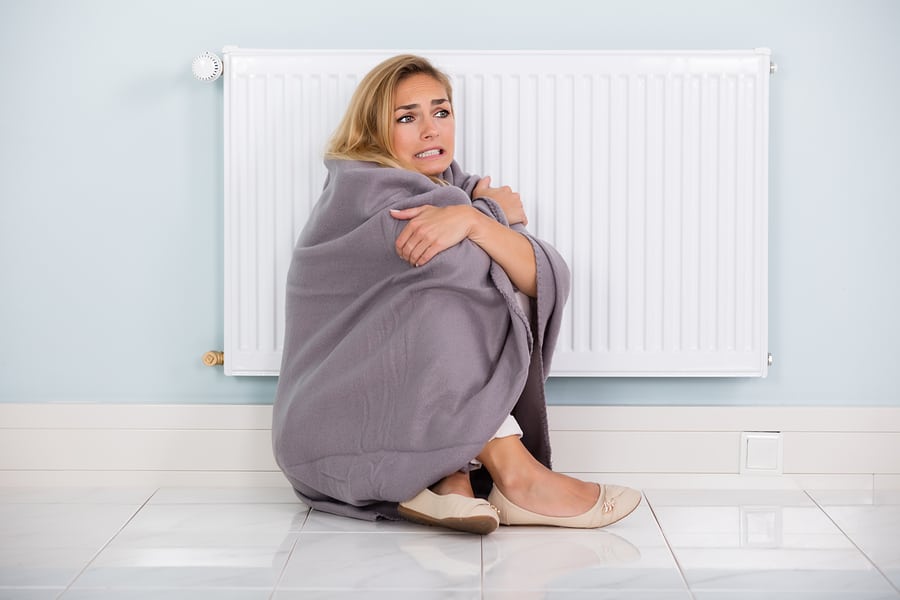Can HEPA filters Stop Allergies?

Flowers are blooming, the grass is green and lush, and trees are bursting with new leaves… Don’t you just love this time of year?
Not so much if you have allergies.
When the pollen count is out of control, all you want to do is hide in an air-conditioned room until fall. Unfortunately, that probably won’t help.
You might think your air conditioning system will filter out all those nasty allergens from the air, but without the right air filters for allergies, you’ll still be sniffling and sneezing your way through the season.
And it’s not just pollen you need to worry about! The summer heat and humidity make the conditions ripe for the growth of mold and mildew, which can also bring on allergy symptoms.
Learn the facts about choosing the right air filters for allergies, as well as other HVAC maintenance tips that can reduce your suffering this season.
Fact #1 About Air Filters for Allergies:
Regular HVAC filters are intended to protect the equipment, not your lungs and sinuses.
Many people mistakenly believe that the air filters in furnaces and air conditioners keep dust and allergens out of the air.
That’s not what HVAC filters are designed to do. Their purpose is to keep dust out of the equipment to prevent damage to the system and keep it running efficiently.
While ordinary furnace and ac filters do help to remove some dust from the air (when changed regularly!), they do little to trap the microscopic particles that cause the sneezing and wheezing of allergy season.
That’s why you need special air filters for allergies that are designed to stop those tiny particles.
Fact #2 About Air Filters for Allergies:
Ordinary paper filters can’t trap allergens.
Those paper filters ordinarily used in your furnace and air conditioner are designed to trap large particles like dust that can accumulate on the motor and fans and reduce efficiency. However, particles like mold, bacteria, and certain types of pollen are much smaller in size, so they slip right through the fibers of those regular filters.
That means they get circulated through your ductwork and blown back into your space.
Air filters for allergies are designed to block much smaller particles, so your air stays cleaner. They are called “high energy particulate air filters” or more commonly, HEPA filters.
Because HEPA filters are made from densely packed layers of glass fibers instead of paper, the best ones can trap more than 99 percent of pollen, dust and smoke particles and keep them out of the air you breathe every day.
Fact #3 About Air Filters for Allergies:
All HEPA filters are not created equal.
Unfortunately, it’s not good enough just to look for a HEPA filter for your air conditioner. To get the best results, you need to check the MERV ratings.
HVAC HEPA air filters for allergies are rated on how well they block particles of different sizes. The rating system is called the minimum efficiency reporting system, or MERV. The ratings range from MERV 1 to MERV 12, with the higher number indicating filters that can remove the smallest particles, including many species of pollen.
Your HVAC service professional can help you get and install the best MERV-rated filter for your air conditioning and heating systems. Ideally you want to choose a MERV rating of 10 or higher, which are most effective at blocking the particles that cause allergy symptoms.
Fact #4 About Air Filters for Allergies:
You need to change those filters more frequently than you think.
HEPA air filters for allergies need to be changed more frequently than ordinary paper HVAC filters, especially during high pollen season.
That means changing them at least every other month, and possibly more often depending on your location. An HVAC service expert can advise you on what’s recommended for your equipment and your area.
Fact #5 About Air Filters for Allergies:
The right filter is only half the story.
Using the right air filters for allergies does help to reduce the allergens in the air, but don’t forget about cleaning it from the rest of your HVAC system. If you haven’t had your air conditioning system maintained at least once every year, you’ve likely got quite a bit of buildup on the blower fans and in your ductwork.
Did you know that the air you breathe cycles through your HVAC system about 5 to 7 times each day? If you have not been using the right HEPA air filters for allergies AND not maintaining your air conditioning system, years’ worth of dust, pollen and even mold spores are sitting in on your equipment and in your ducts right now.
Check out our list of 31 HVAC tips to learn about even more air quality and AC tips for your home!
Call NexGen HVAC & Plumbing
Our expertise and commitment to customer satisfaction make us the leading HVAC company in Southern California. To learn more about our equipment, services, and protection plan, book an appointment online or call 888-277-0415.
How to Prepare Your HVAC System for Spring

As winter melts away and birds begin to chirp, you’ve told yourself multiple times: “I need to look into how to prepare my HVAC system for spring.”
Wise homeowners will ensure that their air conditioner is in top working order for that first warm day. By following the five tips below, you can be ready when summer weather hits and set yourself up for energy-efficient and cost-effective cooling all summer long.
1. Change Your HVAC Filters
If you want to know how to get rid of allergies this spring, you can begin by simply replacing the furnace filter on your HVAC system. As every allergy sufferer knows, spring brings ample amounts of pollen and other airborne allergens. Remove these seasonal allergens from your home with a brand-new furnace filter. If your air conditioning unit employs additional air filters of any kind, you should replace each of these as well. There’s no telling what has settled on them over the long winter months!
2. Inspect the Ducts and Insulation
Leaking ducts and missing insulation on your HVAC system will have your air conditioner working overtime. A professional technician can insure that your ducts are airtight and well-insulated, leading you to cheaper monthly utility bills throughout the summer. Hate warm spots in your otherwise cool home? An optimized duct system will ensure that each corner of each room has an even and comfortable temperature.
3. Make Sure That Your HVAC System is Clean
Although a new furnace filter can work wonders in terms of the overall air quality of your home, the dirt that already rests within your duct system can quickly clog it. For this reason, experts recommend scheduling professional duct cleaning every five to seven years. Homeowners should also ensure that all indoor and outdoor air conditioning equipment/infrastructure is completely free of dirt and debris. When it comes to outdoor air conditioning units, you must also protect against invading plants and pests that may cause unexpected damage. Keep grass and weeds away from all vents and call a pest control specialist to handle any insect/animal intruder.
4. Consider a Programmable Thermostat
When you’re at work or outside in the summer sunshine, you simply don’t need to cool an empty house. Stop running your air conditioner constantly by installing a programmable thermostat. Unlike traditional thermostats that must be set by hand, this device incorporates a timer that can trigger a new temperate setting for each hour of the day and night. It even knows the difference between a Wednesday (when you’re hard at work) and a Saturday (when you’re relaxing around the house).
5. Schedule a Spring HVAC Tune-Up
To get the most out of your HVAC system, you should schedule professional maintenance visits at least twice a year. For all of the reasons detailed above, spring is an ideal time for one of these visits. In addition to inspecting, cleaning, and/or repairing your ducts, you can ensure that all components of your air conditioner are in perfect working order. And a trained HVAC technician can also install that programmable thermostat you’ve been considering!
NexGen Air provides comprehensive HVAC services for both residential and business clients. Schedule your seasonal tune-up with NexGen Air today before spring has sprung!
Call NexGen Today
Our expertise and commitment to customer satisfaction make us the leading HVAC company in Southern California. To learn more about our equipment, services, and protection plan,
book an appointment online or call
888-277-0415.
5 Reasons Why Your HVAC System Could Be Causing Your Allergies

It has been proven that the quality of your home's indoor air can directly affect your family's health. According to the EPA, exposure to poor indoor air quality can cause immediate discomfort. They warn that the long term effects from extended periods of breathing indoor air pollution can also cause lingering and chronic illnesses. Many respiratory diseases and allergies have been linked to living in a home with dirty air.
After long periods of time, the concentrations of indoor pollution will continue to build up, and the resulting health effects can be debilitating and are often the cause of allergies. It is important to have regular maintenance of your HVAC system to eliminate or reduce the circulation of contaminants in your home. HVAC technicians that perform regular inspection and cleaning of your HVAC units and ductwork can also detect more serious conditions, such as carbon monoxide leakage which can be deadly.
1. Dust and Dirty Air Filters
HVAC maintenance may include removing dust from the register and return vents in the home. Also, a yearly replacement of your home’s furnace filters is crucial for good indoor air quality. Speak with your HVAC technician about the choices in high quality air filters that remove a greater amount of airborne particulates.
2. Mold in Home or AC Unit
Mold can thrive within different areas of you AC unit that are prone to humidity and moisture. These include the drip pan, evaporator coils, and within air ducts. Technicians are trained to detect mold and will advise on the best measures the homeowner should take for removal. If mold is circulated from other parts of your home by way of the duct system, the fungus spores will enter nose and lungs, presenting symptoms that resemble hay fever.
3. Pet Dander and Pollen Circulation
If someone in your family already experiences environmental allergies, then poor air quality from outside sources can enter your HVAC system and cause increased symptoms. According to WebMD, using HEPA filtersto trap these pollutants can help bring relief from allergies. With a HEPA filter, air is forced through such a fine mesh, that harmful and allergy-causing particles are trapped. If you are considering a HEPA filter, consult with an HVAC expert to determine if an upgrade to your HVAC system is required to handle the high energy required to pass air through these filters.
4. Carbon Monoxide Exposure
Low exposure to carbon monoxide can present symptoms that resemble allergies. Low concentration levels of CO in your home over long periods of time can cause nausea, headache, dizziness, and weakness. The mucous membranes are also affected and may eventually appear cherry red in color - this is an allergic reaction to the gas. Since carbon monoxide is odorless and tasteless, your HVAC technician can recommend a high quality CO detector to protect your home.
5. Lack of HVAC Maintenance
The overall health of your HVAC system can contribute to your indoor air quality and reduce or increase allergies. From regular cleaning, to high quality filters, and regular inspection for signs of biological contaminants - regular HVAC maintenance will help reduce the allergic symptoms that your family is experiencing.
Call NexGen Today
Our expertise and commitment to customer satisfaction make us the leading HVAC company in Southern California. To learn more about our equipment, services, and protection plan,
book an appointment online or call
888-277-0415.
Reasons Your Heater is Blowing Cold Air

Expert Heater Repair in Los Angeles
Having a heater or heating system that blows cold air is a common problem. However, if you don’t take the right steps right away, this might cause you to incur heavy replacement costs. So the first time you feel a blast of cold air from your heater, here are a few things which need your attention.
Sometimes, these issues are easy to fix and you can resolve them on your own. At other times, you may need the assistance of a professional HVAC service to restore the proper functionality of your heater.
Common Issues with Heaters Blowing Cold Air
Thermostat Settings
The most frequent reason heaters malfunction can be a faulty thermostat. The thermostat is a major component of any heating system and where major HVAC issues begin.
Take a look at the thermostat and set it to ‘auto’ instead of ‘on’. When you keep your thermostat to ‘on’ mode, it constantly runs its fan to blow out air, even when your furnace is not actually heating.
Pilot Light Gone Out
Another possible reason for getting cold air out of your heater could have to do with the pilot light. Chances are that the pilot light is out. The pilot light is the small flame that lights when you turn on the heater. Sometimes you just need to re-light the pilot light in order to fix the problem. Also, the gas valve of your heater may be shut off if you are using a gas heater.
Also, make sure that you are receiving gas at full pressure in your home. You can do this by checking your gas-powered oven or stove. In the case of the electric furnace, check the connections and make sure that you are receiving adequate power.
Inspect Air Filters
Clogged air filters are another reason you could be experiencing cold air from your heater. A restricted or limited air flow can cause your heater to overheat. As a safety precaution, this overheating shuts off your heater’s burners. This safety control is installed to prevent damage to your furnace. So inspect the air filters and clean them to allow proper air flow, cleaning them every month, and replacing them every three months.
Duct Problems
When your duct is leaking, it makes you feel as if your furnace has stopped working. This happens because the cold air from outside your attic easily crawlspace and enters your house through these duct holes. So before you blame your heater for malfunctioning, first check your duct for any leaks or cracks. This is relatively an easy issue to fix as opposed to calling up the assistance of an electrician to fix the heating system.
Speaking of which, not every heating system issue can be fixed as a DIY project. Therefore, don’t hesitate in taking the assistance of a professional, nor should you simply overlook the issue altogether.
Call NexGen Today
Our expertise and commitment to customer satisfaction make us the leading HVAC company in Southern California. To learn more about our equipment, services, and protection plan,
book an appointment online or call
888-277-0415.












